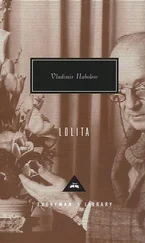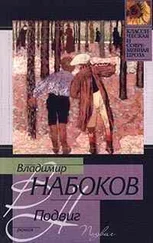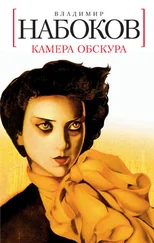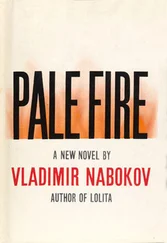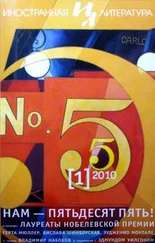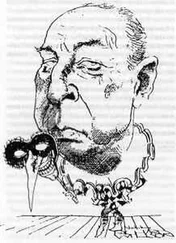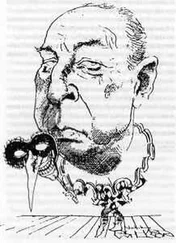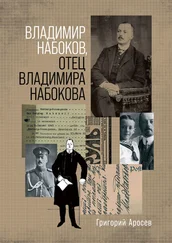Владимир Набоков - Pale Fire
Здесь есть возможность читать онлайн «Владимир Набоков - Pale Fire» весь текст электронной книги совершенно бесплатно (целиком полную версию без сокращений). В некоторых случаях можно слушать аудио, скачать через торрент в формате fb2 и присутствует краткое содержание. Жанр: Классическая проза, на английском языке. Описание произведения, (предисловие) а так же отзывы посетителей доступны на портале библиотеки ЛибКат.
- Название:Pale Fire
- Автор:
- Жанр:
- Год:неизвестен
- ISBN:нет данных
- Рейтинг книги:4 / 5. Голосов: 1
-
Избранное:Добавить в избранное
- Отзывы:
-
Ваша оценка:
- 80
- 1
- 2
- 3
- 4
- 5
Pale Fire: краткое содержание, описание и аннотация
Предлагаем к чтению аннотацию, описание, краткое содержание или предисловие (зависит от того, что написал сам автор книги «Pale Fire»). Если вы не нашли необходимую информацию о книге — напишите в комментариях, мы постараемся отыскать её.
Pale Fire — читать онлайн бесплатно полную книгу (весь текст) целиком
Ниже представлен текст книги, разбитый по страницам. Система сохранения места последней прочитанной страницы, позволяет с удобством читать онлайн бесплатно книгу «Pale Fire», без необходимости каждый раз заново искать на чём Вы остановились. Поставьте закладку, и сможете в любой момент перейти на страницу, на которой закончили чтение.
Интервал:
Закладка:
The secret passage seemed to have grown more squalid. The intrusion of its surroundings was even more evident than on the day when two lads shivering in thin jerseys and shorts had explored it. The pool of opalescent ditch water had grown in length; along its edge walked a sick bat like a cripple with a broken umbrella. A remembered spread of colored sand bore the thirty-year-old patterned imprint of Oleg's shoe, as immortal as the tracks of an Egyptian child's tame gazelle made thirty centuries ago on blue Nilotic bricks drying in the sun. And, at the spot where the passage went through the foundations of a museum, there had somehow wandered down, to exile and disposal, a headless statue of Mercury, conductor of souls to the Lower World, and a cracked krater with two black figures shown dicing under a black palm.
The last bend of the passage, ending in the green door, contained an accumulation of loose boards across which the fugitive stepped not without stumbling. He unlocked the door and upon pulling it open was stopped by a heavy black drapery. As he began fumbling among its vertical folds for some sort of ingress, the weak light of his torch rolled its hopeless eye and went out. He dropped it: it fell into muffled nothingness. The King thrust both arms into the deep folds of the chocolate-smelling cloth and, despite the uncertainty and the danger of the moment, was, as it were, physically reminded by his own movement of the comical, at first controlled, then frantic undulations of a theatrical curtain through which a nervous actor tries vainly to pass. This grotesque sensation, at this diabolical instant, solved the mystery of the passage even before he wriggled at last through the drapery into the dimly lit, dimly cluttered lumbarkamer which had once been Iris Acht's dressing room in the Royal Theater. It still was what it had become after her death: a dusty hole of a room communicating with a kind of hall whither performers would sometimes wander during rehearsals. Pieces of mythological scenery leaning against the wall half concealed a large dusty velvet-framed photograph of King Thurgus - bushy mustache, pince-nez, medals - as he was at the time when the mile-long corridor provided an extravagant means for his trysts with Iris.
The scarlet-clothed fugitive blinked and made for the hall. It led to a number of dressing rooms. Somewhere beyond it a tempest of plaudits grew in volume before petering out. Other distant sounds marked the beginning of the intermission. Several costumed performers passed by the King, and in one of them he recognized Odon. He was wearing a velvet jacket with brass buttons, knickerbockers and striped stockings, the Sunday attire of Gutnish fishermen, and his fist still clutched the cardboard knife with which he had just dispatched his sweetheart. "Good God," he said on seeing the King.
Plucking a couple of cloaks from a heap of fantastic raiments, Odon pushed the King toward a staircase leading to the street. Simultaneously there was a commotion among a group of people smoking on the landing. An old intriguer who by dint of fawning on various Extremist officials had obtained the post of Scenic Director, suddenly pointed a vibrating finger at the King, but being afflicted with a bad stammer could not utter the words of indignant recognition which were making his dentures clack. The King tried to pull the front flap of his cap over his face - and almost lost his footing at the bottom of the narrow stairs. Outside it was raining. A puddle reflected his scarlet silhouette. Several vehicles stood in a transverse lane. It was there that Odon usually left his racing car. For one dreadful second he thought it was gone, but then recalled with exquisite relief that he had parked it that night in an adjacent alley. (See the interesting note to line 149).
Lines 131-132: I was the shadow of the waxwing slain by feigned remoteness in the windowpane.
The exquisite melody of the two lines opening the poem is picked up here. The repetition of that long-drawn note is saved from monotony by the subtle variation in line 132 where the assonance between its second word and the rhyme gives the ear a kind of languorous pleasure as would the echo of some half-remembered sorrowful song whose strain is more meaningful than its words. Today, where the "feigned remoteness" has indeed performed its dreadful duty, and the poem we have is the only "shadow" that remains, we cannot help reading into these lines something more than mirrorplay and mirage shimmer. We feel doom, in the image of Gradus, eating away the miles and miles of "feigned remoteness" between him and poor Shade. He, too, is to meet, in his urgent and blind flight, a reflection that will shatter him.
Although Gradus availed himself of all varieties of locomotion - rented cars, local trains, escalators, airplanes - somehow the eye of the mind sees him, and the muscles of the mind feel him, as always streaking across the sky with black traveling bag in one hand and loosely folded umbrella in the other, in a sustained glide high over sea and land. The force propelling him is the magic action of Shade's poem itself, the very mechanism and sweep of verse, the powerful iambic motor. Never before has the inexorable advance of fate received such a sensuous form (for other images of that transcendental tramp's approach see note to line 17).
Line 137: lemniscate
"A unicursal bicircular quartic" says my weary old dictionary. I cannot understand what this has to do with bicycling and suspect that Shade's phrase has no real meaning. As other poets before him, he seems to have fallen here under the spell of misleading euphony.
To take a striking example: what can be more resounding, more resplendent, more suggestive of choral and sculptured beauty, than the word coramen? In reality, however, it merely denotes the rude strap with which a Zemblan herdsman attaches his humble provisions and ragged blanket to the meekest of his cows when driving them up to the vebodar (upland pastures).
Lines 143: a clockwork toy
By a stroke of luck I have seen it! One evening in May or June I dropped in to remind my friend about a collection of pamphlets, by his grandfather, an eccentric clergyman, that he had once said was stored in the basement. I found him gloomily waiting for some people (members of his department, I believe, and their wives) who were coming for a formal dinner. He willingly took me down into the basement but after rummaging among piles of dusty books and magazines, said he would try to find them some other time. It was then that I saw it on a shelf, between a candlestick and a handless alarm clock. He, thinking I might think it had belonged to his dead daughter, hastily explained it was as old as he. The boy was a little Negro of painted tin with a keyhole in his side and no breadth to speak of, just consisting of two more or less fused profiles, and his wheelbarrow was now all bent and broken. He said, brushing the dust off his sleeves, that he kept it as a kind of memento mori - he had had a strange fainting fit one day in his childhood while playing with that toy. We were interrupted by Sybil's voice calling from above; but never mind, now the rusty clockwork shall work again, for I have the key.
Line 149: one foot upon a mountain
The Bera Range, a two-hundred-mile-long chain of rugged mountains, not quite reaching the northern end of the Zemblan peninsula (cut off basally by an impassable canal from the mainland of madness), divides it into two parts, the flourishing eastern region of Onhava and other townships, such as Aros and Grindelwod, and the much narrower western strip with its quaint fishing hamlets and pleasant beach resorts. The two coasts are connected by two asphalted highways; the older one shirks difficulties by running first along the eastern slopes northward to Odevalla, Yeslove and Embla, and only then turning west at the northmost point of the peninsula; the newer one, an elaborate, twisting, marvelously graded road, traverses the range westward from just north of Onhava to Bregberg, and is termed in tourist booklets a "scenic drive." Several trails cross the mountains at various points and lead to passes none of which exceeds an altitude of five thousand feet; a few peaks rise some two thousand feet higher and retain their snow in midsummer; and from one of them, the highest and hardest, Mt. Glitterntin, one can distinguish on clear days, far out to the east, beyond the Gulf of Surprise, a dim iridescence which some say is Russia.
Читать дальшеИнтервал:
Закладка:
Похожие книги на «Pale Fire»
Представляем Вашему вниманию похожие книги на «Pale Fire» списком для выбора. Мы отобрали схожую по названию и смыслу литературу в надежде предоставить читателям больше вариантов отыскать новые, интересные, ещё непрочитанные произведения.
Обсуждение, отзывы о книге «Pale Fire» и просто собственные мнения читателей. Оставьте ваши комментарии, напишите, что Вы думаете о произведении, его смысле или главных героях. Укажите что конкретно понравилось, а что нет, и почему Вы так считаете.

